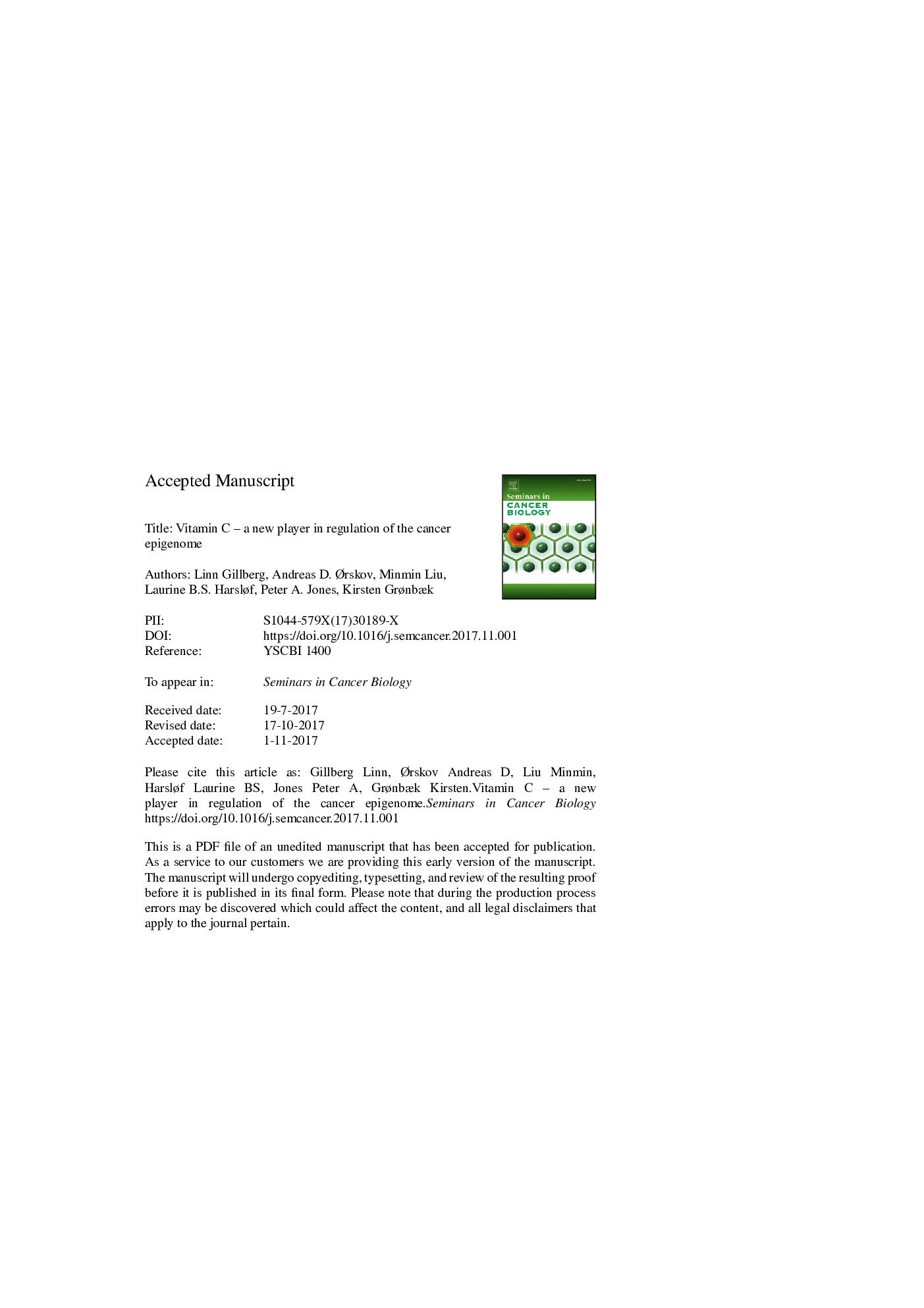| Article ID | Journal | Published Year | Pages | File Type |
|---|---|---|---|---|
| 8361731 | Seminars in Cancer Biology | 2018 | 25 Pages |
Abstract
Over the past few years it has become clear that vitamin C, as a provider of reduced iron, is an essential factor for the function of epigenetic regulators that initiate the demethylation of DNA and histones. Vitamin C deficiency is rare in the general population, but is frequently observed in patients with cancer. Genes encoding epigenetic regulators are often mutated in cancer, underscoring their central roles in carcinogenesis. In hematological cancers, such as acute myeloid leukemia (AML) and myelodysplastic syndrome (MDS), drugs that reverse epigenetic aberrations are now the standard of care. Recent in vitro studies suggest that vitamin C at physiological concentrations, combined with hypomethylating agents may act synergistically to cause DNA demethylation through active and passive mechanisms, respectively. Additionally, several recent studies have renewed interest in the use of pharmacological doses of vitamin C injected intravenously to selectively kill tumor cells. This review will focus on the potential of vitamin C to optimize the outcome of epigenetic therapy in cancer patients and alternatively to act as a therapeutic at high doses.
Keywords
5hmC5fCAMLHERVsDNA methyltransferase inhibitorssodium-dependent vitamin C transporterSVCT5caCHDMDnmtGLUTTETMDSGSSGGSH5mC5-formylcytosine5-Methylcytosine5-hydroxymethylcytosine5-carboxylcytosineDNA methyltransferaseROSAscorbic acidDehydroascorbic acidEpigeneticsHematological malignanciesGlucose transporterCancer treatmentDHAHuman endogenous retrovirusesmyelodysplastic syndromeacute myeloid leukemiahistone demethylasevitamin CGlutathioneglutathione disulfideReactive oxygen species
Related Topics
Life Sciences
Biochemistry, Genetics and Molecular Biology
Biochemistry
Authors
Linn Gillberg, Andreas D. Ãrskov, Minmin Liu, Laurine B.S. Harsløf, Peter A. Jones, Kirsten Grønbæk,
